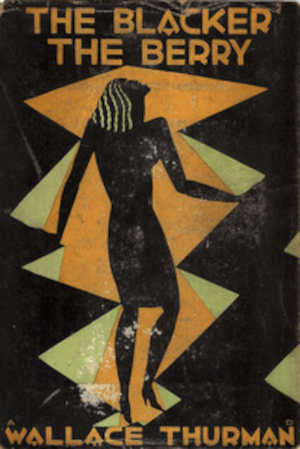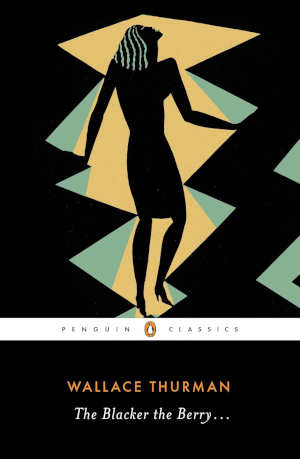The Blacker the Berry
- Auteur: Wallace Thurman (Verenigde Staten)
- Soort boek: Harlem Renaissance roman uit 1929
- Taal: Engels
- Uitgever: Penguin
- Omvang; 192 pagina’s
- Uitgave: paperback / ebook
- Waardering redactie: ∗∗∗∗∗ (uitstekend)
- Boek bestellen bij: Amazon / Bol / Libris
Wallace Thurman The Blacker the Berry recensie, review en informatie
- “The first novel to focus its plot on race prejudice or ‘colorism’ among African Americans…Apart from the vibrant character of Emma Lou, Thurman’s novel presents some of the most layered portrayals of New York City life I’ve ever come across, from seedy employment agency waiting rooms to swank Harlem hot spots.” (Maureen Corrigan, NPR’s Fresh Air)
Flaptekst van de roman uit 1929 van Wallace Thurman
The groundbreaking Harlem Renaissance novel about prejudice within the black community.
Emma Lou Morgan’s skin is black. So black that it’s a source of shame to her not only among the largely white community of her hometown of Boise, Idaho, but also among her lighter-skinned family and friends. Seeking a community where she will be accepted, she leaves home at age eighteen, traveling first to Los Angeles and then to New York City, where in the Harlem of the 1920s she finds a vibrant scene of nightclubs and dance halls and parties and love affairs . . . and, still, rejection by her own race.
One of the most widely read and controversial works of the Harlem Renaissance, and the first novel to openly address prejudice among black Americans and the issue of colorism, The Blacker the Berry . . . is a book of undiminished power about the invidious role of skin color in American society.
Wallace Thurman (16 August 1902, Salt Lake City, Utah – 22  December 1934, New York City) was a Afro-American writer during the Harlem Renaissance. He died at the age of only 32 as reult of tuberculosis, probably caused by alcoholism. He worked as a ghostwriter, a publisher, and editor and wrote novels, plays, and articles. In 1926, he became the editor of The Messenger, a socialist journal addressed to black people and publised stories of Afro-American writer Langston Hughes.
December 1934, New York City) was a Afro-American writer during the Harlem Renaissance. He died at the age of only 32 as reult of tuberculosis, probably caused by alcoholism. He worked as a ghostwriter, a publisher, and editor and wrote novels, plays, and articles. In 1926, he became the editor of The Messenger, a socialist journal addressed to black people and publised stories of Afro-American writer Langston Hughes.
